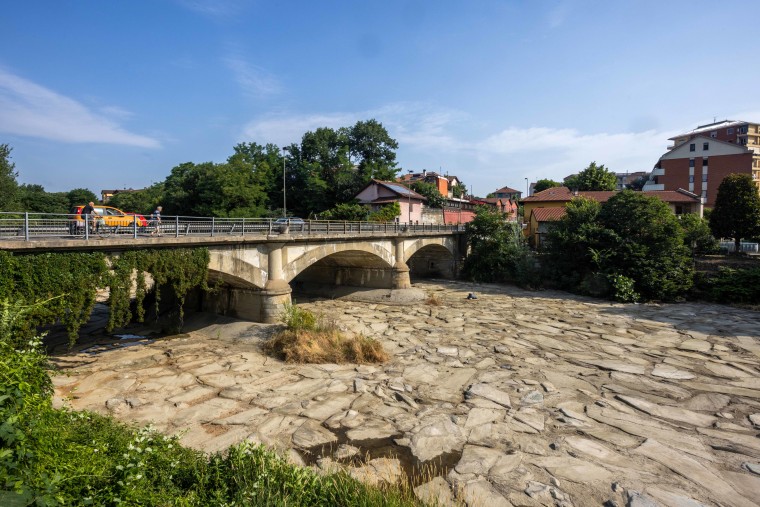Italy on Monday declared a state of emergency for areas surrounding the Po river, which accounts for roughly a third of the country’s agricultural production and is suffering its worst drought for 70 years.
The government decree will allow authorities to cut through red tape and take action immediately if they think it necessary, such as to impose water rationing for homes and businesses.
The Po is Italy’s longest river which runs for more than 400 miles through the wealthy north of Italy. Its waters help irrigate rice paddies, farm fields and grazing land for cows, including some whose milk is used to make prized Parmigiano Reggiano cheese.
However, many stretches of the waterway have run dry and farmers say the flow is so weak that sea water is seeping inland, destroying crops.
The government said in a statement that the emergency measures would cover lands that bordered the Po and the water basins of the eastern Alps.
More broadly, it also introduced a state of emergency in five northern regions — Emilia-Romagna, Friuli Venezia Giulia, Lombardy, Piedmont and Veneto — earmarking an initial 36.5 million euros ($38 million) of funds to help them tackle the water shortage.
“The state of emergency is aimed at managing the current situation with extraordinary means and powers, with relief and assistance to the affected population,” the government said.
It added that further measures could be taken in future to deal with the drought which water authorities say is increasingly impacting central Italy after an extremely dry winter and spring followed by an exceptionally hot early summer.
Italian media have reported that Prime Minister Mario Draghi was also considering appointing a commissioner to coordinate the drought response, in a similar way to which the government created a commissioner to oversee the coronavirus crisis.
